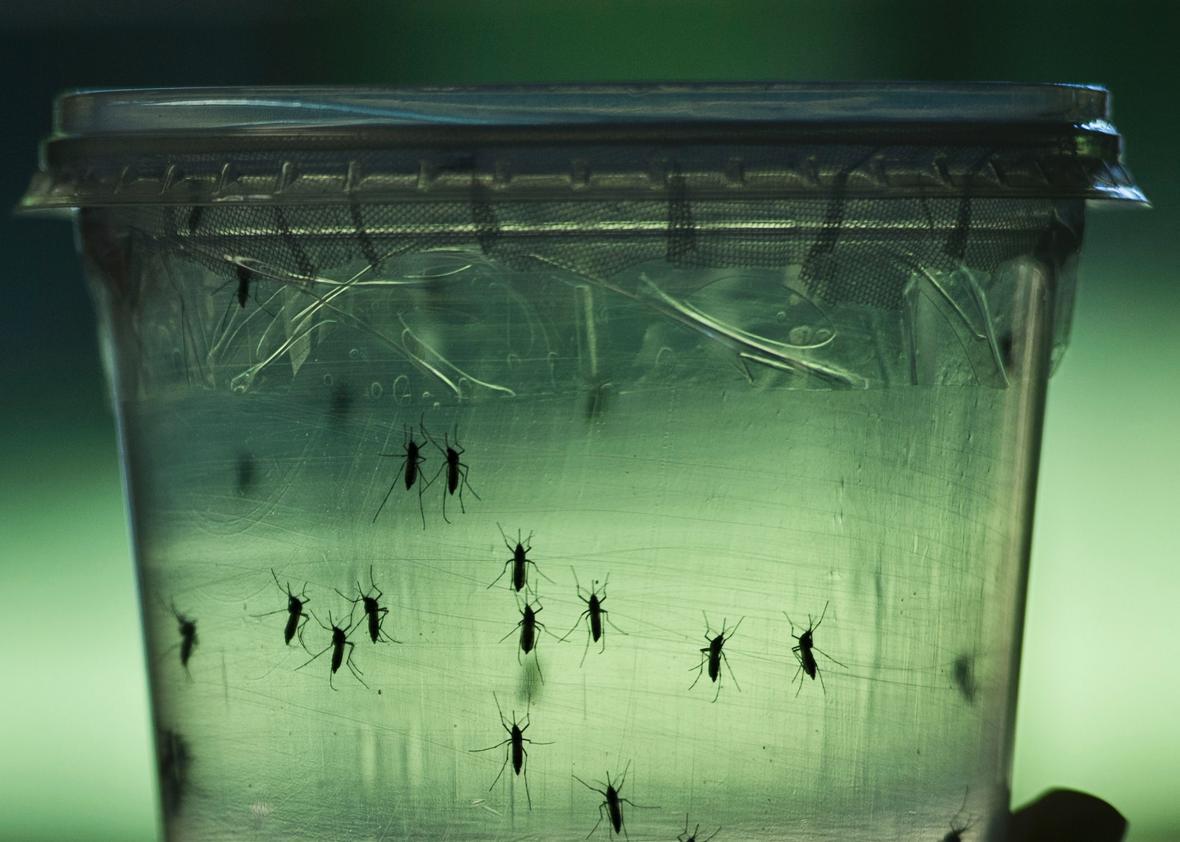Jamaican authorities have advised the country’s women to avoid becoming pregnant in the next six months to a year, as the mosquito-transmitted Zika virus sweeps through South and Central America, Mexico, and the Caribbean.
The AP reports that although Jamaica has not seen any confirmed cases of Zika, the country’s health minister predicts that the virus, which has already spread to nearby Haiti, will affect Jamaica in due time. There is no treatment or prophylaxis for the disease, which is similar to dengue fever. Zika is thought to cause microcephaly when it infects pregnant women, a rare condition that causes infants to develop abnormally small heads and incomplete brains.
Studies have not established a definitive link between Zika and microcephaly, but the virus has been confirmed in babies with the birth defect and it is transmissible between a woman and her fetus. In Brazil, the incidence of microcephaly in infants increased 20-fold from 2014 to 2015, when the country reported its first Zika case. In the past four months alone, Brazil has seen 3,500 microcephaly cases as it tries to halt Zika’s spread. Late last year, a Brazilian health worker made an unofficial recommendation: “Don’t get pregnant at the moment.” A pediatric infectologist in the country’s most Zika-prone state agreed.
On Tuesday, the Centers for Disease Control and Prevention put forth guidelines for pregnant women and their doctors, urging the latter to ask all their pregnant patients about their travel plans and the former to avoid travel to areas where Zika is present. The release doesn’t go so far as to recommend abortion for pregnant women with a Zika infection, but it gets mighty close: “In a pregnant woman with laboratory evidence of Zika virus in serum or amniotic fluid, serial ultrasounds should be considered to monitor fetal anatomy and growth every 3–4 weeks. Referral to a maternal-fetal medicine or infectious disease specialist with expertise in pregnancy management is recommended.”
In a travel alert issued on Friday, the CDC advised pregnant women to postpone travel to affected areas and warned of Zika’s potential to spread to the U.S. “With the recent outbreaks in the Americas, the number of Zika virus disease cases among travelers visiting or returning to the United States likely will increase. These imported cases may result in local spread of the virus in some areas of the continental United States, meaning these imported cases may result in human-to-mosquito-to-human spread of the virus.” Last week, a Houston man who’d recently traveled to Latin America was diagnosed with Zika, the first case in the continental United States. Hawaiian health officials just confirmed that a newborn with microcephaly in the state was infected with Zika; its mother was pregnant while living in Brazil last May. Only about one in five people who contract Zika exhibit symptoms, making it far more dangerous for a fetus than for its mother.
